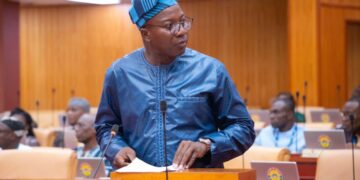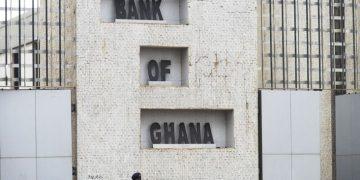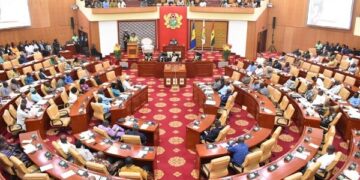Interesting revelations are emerging from a confidential letter written by the embattled former Director of the National Signals Bureau (NSB), Mr Kwabena Adu-Boahene, who is currently under investigations by the Economic and Organised Crime Office (EOCO).
In the letter dated 5th May, 2025, and marked “confidential,” Mr Adu-Boahene contends that nearly GH¢49 million, for which he and his wife Angela have been charged with misappropriation, was not stolen but rather used to fund sensitive national security operations, parliamentary activities, and political stability measures.
The claims, supported by a legal memorandum from his lawyers, Zoe, Akyea & Co., raise serious concerns about the governance and transparency of public spending, particularly in relation to classified operations.
If true, they do not merely exonerate Mr Adu-Boahene from the allegations of theft but cast a shadow over the credibility of some of the nation’s most critical institutions.
One of the most troubling disclosures is the assertion that approximately GH¢1.3 million was disbursed as allowances to Members of Parliament serving on the Defence, Interior, and Subsidiary Legislation Committees.
These payments, he alleges, were linked to the passage of the National Signals Bureau Act, 2020 (Act 1040), which would suggest a troubling precedent where parliamentary oversight and legislative independence could be influenced by undisclosed financial inducements.
Furthermore, the memorandum lists significant sums spent on classified operations code-named “Taurus”, “Scorpion”, and “Essien”, along with expenditures related to the 2020 and 2024 general elections, including polling logistics, personnel, and procurement of vehicles. Most notably, Mr Adu-Boahene claims that over GH¢8 million was used to support the collation system of an opposition political party.
He further asserts that part of the funds were used to procure high-end vehicles, including 2024 Nissan Patrols and Toyota Land Cruisers, to support the transition team of the President-elect, and maintains that neither he nor his wife personally benefitted from any of these transactions.
“How does one steal public funds in the manner being described by the Attorney-General without being flagged by the Auditor-General?” he queried in his letter, a question that begs for urgent answers.
Of equal concern are the allegations that EOCO’s leadership, particularly its Executive Director, Mr Raymond Archer, is engaged in a deliberate campaign to tarnish his image using bloggers and social media influencers. If substantiated, such actions would not only undermine public trust in EOCO but also raise serious ethical questions about the conduct of those charged with upholding the law.
As matters stand, the public is left with more questions than answers.
In a democratic society, transparency and accountability are not optional ideals, they are the foundation upon which public confidence is built. While national security concerns may justifiably require confidentiality, such secrecy must not be misused to conceal misappropriation, reward political allies, or suppress institutional accountability.
As a matter of urgency, we call for the establishment of a bipartisan committee to investigate the veracity of these claims, including the alleged payments to MPs and the broader implications for parliamentary integrity.
The truth must be uncovered, no matter how uncomfortable it may be.



















































































